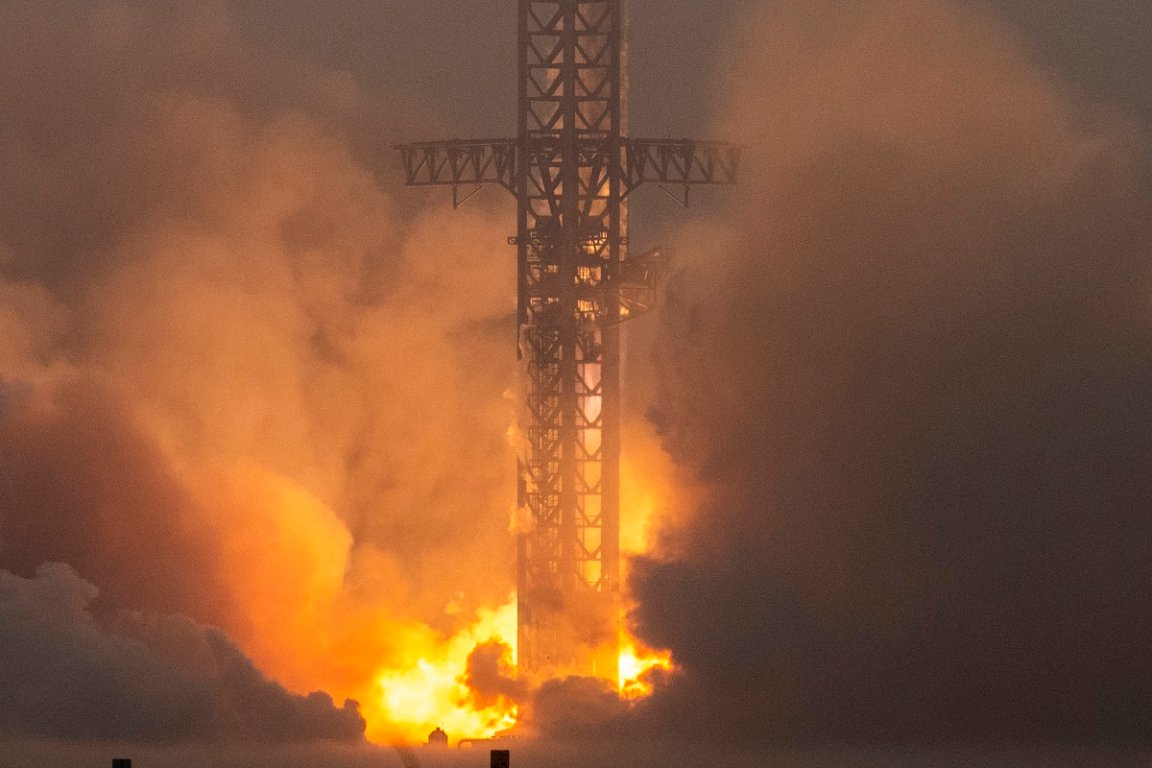
Blast Radius
Picture this: you’re resting on the porch of your beach home in Florida, when suddenly the deafening roar of an enormous spacecraft streaks through the skies overhead, shaking windows and doors with tremendous force.
Now imagine this happening more than 70 times a year.
This scenario seems increasingly likely due to SpaceX CEO Elon Musk’s plans to launch dozens of space flights per year from Cape Canaveral, The Wall Street Journal reports — and the prospect has residents, fishermen, airline pilots, environmentalists, and even rival space companies feeling alarmed.
At Cape Canaveral, Musk has been looking at two separate launch sites for Starship, considered to be the world’s largest space rocket at 397 feet tall and a linchpin to NASA’s future Moon missions and Musk’s ambitions for colonizing Mars.
One site controlled by NASA may see as many as 44 Starship launches, according to the WSJ. At another site overseen by Space Force, the Starship could launch up to 76 times a year.
That’ll be quite a commotion, according to the WSJ, because the mammoth spacecraft — currently being tested in Texas — has the same thrusting power as 160 Boeing 787 commercial jets lifting off at the same time at one location.
Not So Blue Skies
Residents are concerned about the noise, vibration and environmental impact of those many rocket launches.
Environmentalist are also upset about this prospect because local wildlife may be disturbed, the WSJ reports, while commercial fishing operations and airline pilots are peeved that Starship launches would shut down traffic in the air and oceans for hours.
Meanwhile, rivals like Jeff Bezos’ space outfit Blue Origin are concerned that Musk’s Starship would get the lion’s share of resources at the launch site.
Rocket launches already happen at Cape Canaveral several times a week, but the pressure to land on the Moon and Mars is sure to make this area even busier — and noisier.
Officials at the Federal Aviation Administration (FAA), which has been gathering public comments on Musk’s plans for Starship, have said they are trying to make sure any future launches will be safe and align with current environmental rules.
But that remains to be seen in light of July reporting by The New York Times that revealed that the Texas site for Starship test flights has had 19 recorded acts of environmental destruction since 2019, all stemming from rocket launches.
Perhaps after this public spanking, the FAA will be more strict with Musk on environmental damages. If not, it’s more than likely residents and other watchdogs will be keeping a close eye on SpaceX and these epically loud rocket launches.
More on SpaceX: Investigation Finds Elon Musk’s SpaceX Used Trickery to Open Rocket Facility